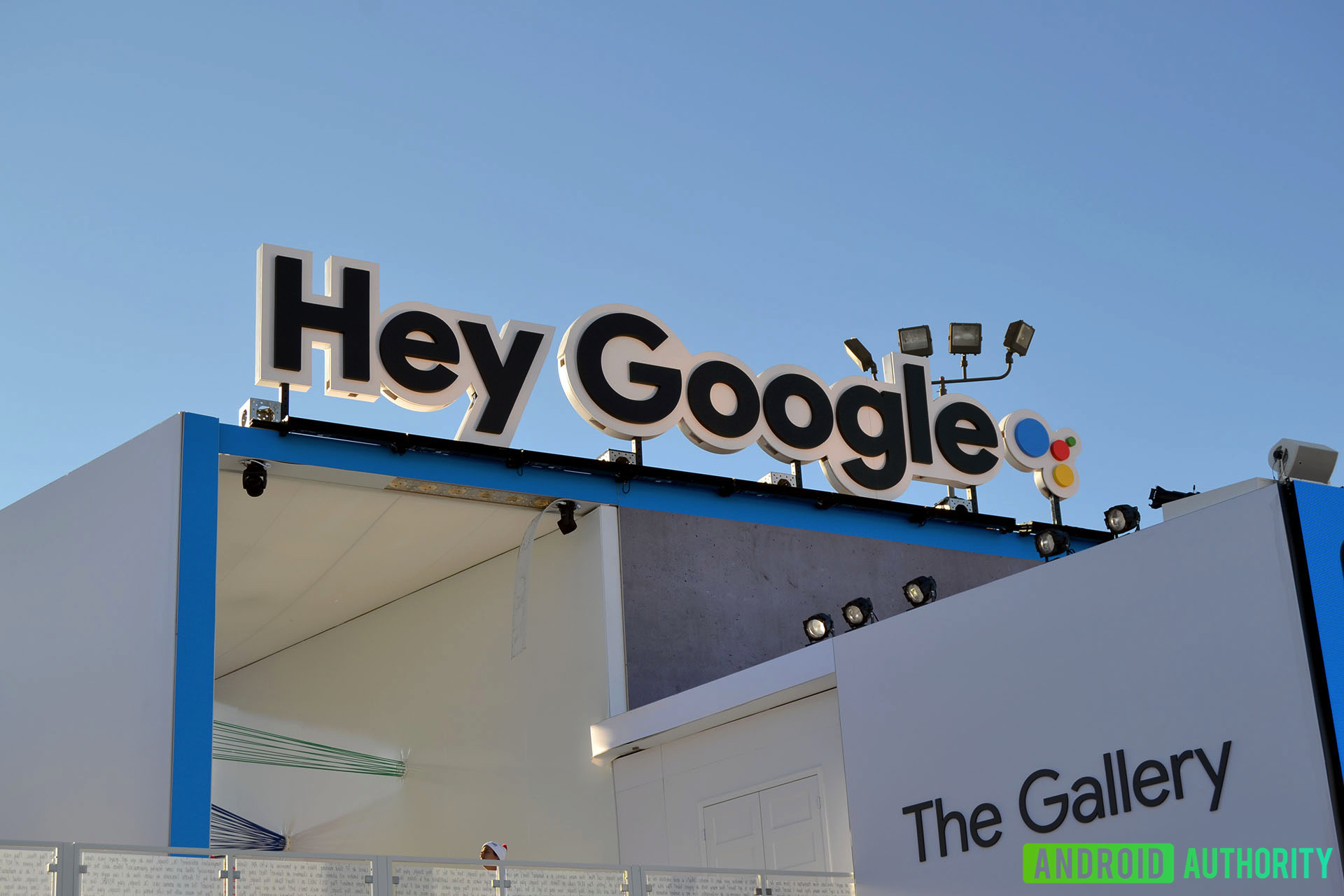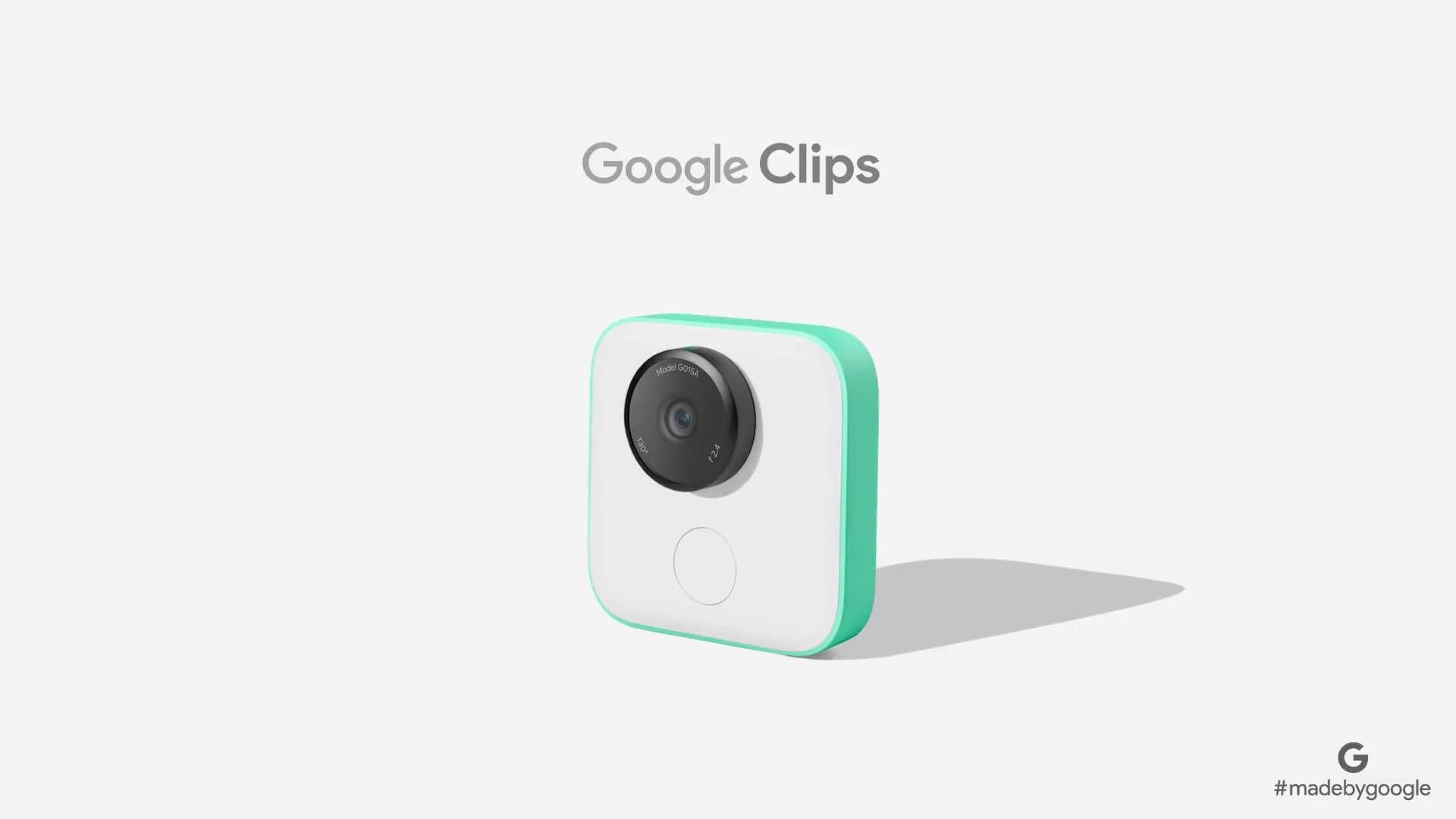Affiliate links on Android Authority may earn us a commission. Learn more.
Killing the 'Google can't innovate anymore' argument

Googlers leaving Google is not always news, but when an outspoken former Google advocate breaks free and starts flamebaiting, it’s worth considering their thoughts.
Steve Yegge’s blog about leaving Google after 13 years in the colorful, happy, free-food-everywhere world caught plenty of attention. That’s definitely what Yegge was after too — he spent more than half of the post hyping where he’s off to next. It’s a fine playbook.
But is Yegge just disgruntled and determined to throw a few headline-grabbing rocks for free publicity, or is he actually making valid points? Some background: Yegge spent six years at Amazon before Google, and once said “Amazon does everything wrong, and Google does everything right.” So what’s changed?
Unpacking Yegge’s first three points are pretty standard for a big company. The company is too conservative, mired in politics, and arrogant. As Yegge himself confirms, those are pretty much unavoidable for a company the size of Google. So let’s leave them be.
The fourth claim is the most meaningful. Yegge believes Google is failing to innovate, that it’s looking sideways rather than investing in new ideas.
“Google has become 100% competitor-focused rather than customer focused.”
Copy-cat competition
Yegge focuses on big copy-cat launches like Google+, Google Cloud copying Amazon’s AWS, Google Home competing with Amazon Echo, Allo vs WhatsApp, and Google Assistant vs Apple’s Siri. He also recognized some exceptions: Google’s Cloud Spanner, BigQuery, TensorFlow, and Waymo.

It’s short-sighted to slight Google for offering useful tools to their users to keep them inside the Google ecosystem. Some of the competitor apps or tools mentioned here are not even innovations — Apple purchased Siri, and Facebook paid a king’s ransom for WhatsApp.

But Yegge hints at deeper problems, at the DNA-level — a popular Silicon Valley term you’ll often hear in metaphorical media bites; “X runs deep in Apple’s DNA” (replace X with music, education, technology, or you can further confuse the metaphor and say that Steve Jobs’ DNA is the base for Apple).
“They are stuck in me-too mode and have been for years,” writes Yegge.
“They simply don’t have innovation in their DNA any more. And it’s because their eyes are fixed on their competitors, not their customers.”
The problem here is that being perceived as innovative can be shockingly fleeting. Snapchat was once lauded for its innovation, especially in the augmented reality space with their Spectacles. Then Spectacles’ cool factor fell off a cliff and they stopped selling, forcing the company to write off $40 million of funky glasses.
Amazon might be praised for the successful projects of its secretive Lab126 R&D unit, like the Kindle and the Amazon Echo. But the Fire Phone was an utter debacle, even if that failure hasn’t slowed anything down. Innovation and failure often walk side by side.
Then again, perhaps Yegge is hinting at Amazon’s rapid progress compared to his perception of Google’s “stalled” innovation. As already noted, he worked for Amazon years before it ever had a hint of being a “cool” brand that could win Oscars and open automated supermarkets people will actually line-up for. Amazon is clearly leading innovation right now; it spends more on R&D than any other company in the world. Alphabet spends third-most, some $3 billion per year ($8 million per day) behind.

Yegge is (mostly) wrong
But back to the main point. Just because Amazon is leading, it’s wrong to say Google is no longer innovating. The “100 percent competitor-focused” line is a complete throwaway cliche. Of course Google is competitor-focused, it just doesn’t sound as catchy to say any number lower than 100.
There are no companies of significance ignoring their competitors. At the scale of Google, not offering something a competitor does means hundreds of millions of users can’t get it in their ecosystem. That’s a problem when the competition also reaches hundreds of millions of users. Not keeping up at the Google level is a massive risk.
True innovation is still possible, but some of the most interesting ideas are only truly possible as start-ups. Uber and Airbnb infamously skirt the law around the world. Ethically challenging ideas like Bodega might make money but can’t be done by a company like Google.
In addition, new innovations build on existing work. The ones we know about are generally the best executions. Apple rarely innovates — the iPhone wasn’t the first multi-touch device, but it was the best implementation. Apple is proud of being the “best,” rather than the first.
A sign of strong desire for more homegrown innovation came late last year when Google shelled out $1.1 billion for approximately 2,000 HTCengineers to better develop its hardware. It also established a separate hardware team in Shanghai, close to the global epicenter of electronics manufacturing. The Pixel line, as influential as it is, hasn’t dramatically changed the smartphone space, but who has? It’s an incremental world of improvement until the next big thing.
Google is a leader, we just don’t always see it
A short and incomplete list of things Google is leading in starts with AI. Google Assistant dominates everything other than Alexa. The DeepMind acquisition has famously beaten Go, and also improved energy efficiency at global data centres, and their photo and image AI is world class. Of course, that’s only scratching the surface. It’s very hard to see what’s changing in Search, which raises an important point.
First we see the big innovations, such as Search, Gmail, YouTube, Maps, and StreetView. The curse of such successful innovation is that it grows to become enormous. The Google Search codebase is more than two billion lines of code. Search is locked into first place, and decades of fine-tuning — more than 50 million commits — have kept Google in front. That’s innovation we’ll rarely see any hint of beyond better results.
Most of us use Google Maps as a boring-but-necessary utility, rather than a source of delight. It isn’t exciting anymore, but Google is so far ahead of other map services it’s ridiculous.
New Essay: “Google Maps’s Moat”https://t.co/RYaNfmTkrj pic.twitter.com/zZCFOFw93C— Justin O’Beirne (@justinobeirne) December 19, 2017
A great indicator of just how far ahead Google Maps has gotten was published just last month, showing some remarkable features over rivals including Apple. Google Local Guides was a neat innovation that is decidedly not machine learning-based, collating raw data from users and turning it into opening hours, answers for questions like if cafes or restaurants are cosy and quiet, or if there’s Wi-Fi available. That’s not happening at this scale anywhere else. Other crowdsourced innovations include, er, Crowdsource, and the very new Google Bulletin for hyper-local news.

With the new AI-powered Clips camera, Google Photos will offer amazing AI insight into your photos, as well as free storage and a host of new experimental Photos apps. Google AMP was a response to Facebook Instant Articles and it won — AMP is now a significant part of the web for publishers.
Let’s also not forget it was Google that found recent vulnerabilities like Broadpwn, Cloudbleed, Heartbleed, Spectre, and Meltdown (the latter two were also found by multiple independent sources). It is clearly leading hardware and software security for everyone, not just Google users.
Then there’s the company’s moonshots, probably the craziest innovations, though admittedly more in the territory of parent company Alphabet than Google itself. Most have now been spun out of Google X, but many use Google’s unparalleled data to produce innovative ideas in spaces like urban planning and city building (SideWalkLabs), the medical sector (Verily), autonomous vehicle development (Waymo), and even immortality (Calico). There’s also a renewable energy spin-off via backyard geothermal play Dandelion. That’s on top of all the plays Yegge mentioned himself, like TensorFlow.
Perhaps in response to the dubiousness of his claim, Yegge posted a follow-up note clarifying some of his points and made it clear he didn’t believe the sky was falling at Google. He made his point clearer after just hinting at it in the previous post: it’s really just that Amazon is doing it better. But innovation isn’t an all-or-nothing scenario.
Jeff Bezos has one of the world's great start-up investment portfolios
Jeff Bezos is an exception. He innovates all the time and he doesn’t fear failure. Many of his ideas fall flat, but he almost never throws them away. Instead he hammers at it until it’s in the right form for success. Amazon churns out innovations at a rate much, much higher than companies of similar size. Not surprisingly, Bezos is now the richest man in the world.
Maybe it’s grass-is-greener talk — Yegge described Bezos as an “infamous micro-manager” who “makes ordinary control freaks look like stoned hippies” back in 2011. That was also when he described Google as 99 percent arrogance-free, so things have either changed dramatically or Yegge has just grown tired of Google life. Either way, smack-talking his employers current and past seems to be Yegge’s M.O.
Opinions aside, Bezos has one of the world’s great investment portfolios in Bezos Expeditions, which includes investments in Airbnb, Google (a $250k investment in 1998), Blue Origin, Uber, Twitter, Stack Exchange, Business Insider, Kongregate, and more. He clearly has a talent for judging and supporting innovation.
Now the Google-Amazon rivalry seems bigger than the Apple-Google one. Apple is increasingly isolated in a premium-cost and premium-build world which not everyone likes, but it works just fine for the Cupertino company. Amazon is for everyone, and it looks like they could dominate the world. With Bezos driving a demand for innovation and spending more than anyone else, suddenly Amazon is the behemoth coming for all others.
Google isn’t known for being feisty. It won’t come out to defend itself from every minor criticism. Google highlights their innovations just like Amazon, only in a more fun, friendlier, Googlier-way. Where Amazon’s innovations gain attention as consumer-focused and therefore mainstream, Google’s innovations across AI and its enormous array of products don’t always dominate the headlines — the DeepMind defeat of the world’s best Go player is one exception.
After 13 years on the inside, Yegge should know Google better than anyone. He’s obviously hugely talented, but he seems jaded. Maybe stepping outside Google will inspire him again. But no innovation and too much competitor-focus? At Google? That’s a reach.